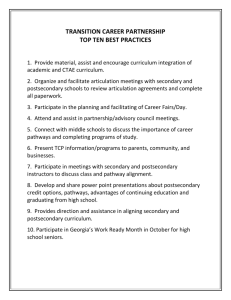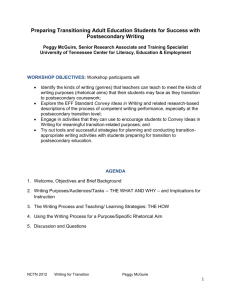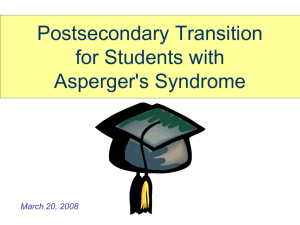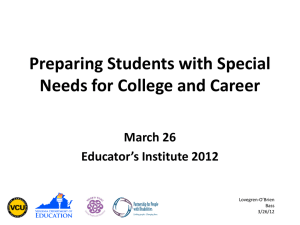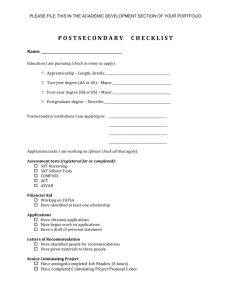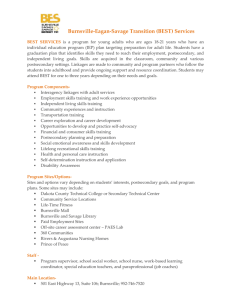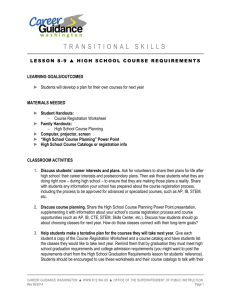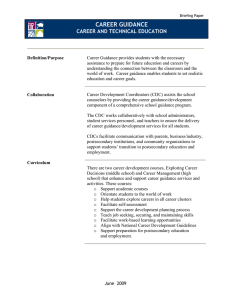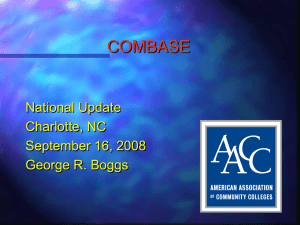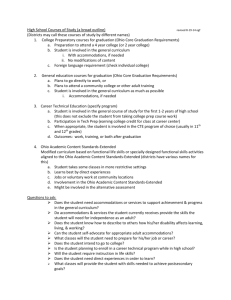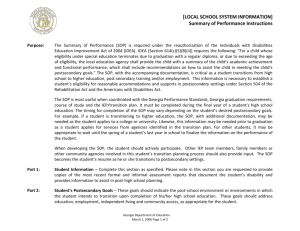transitioning to college
advertisement
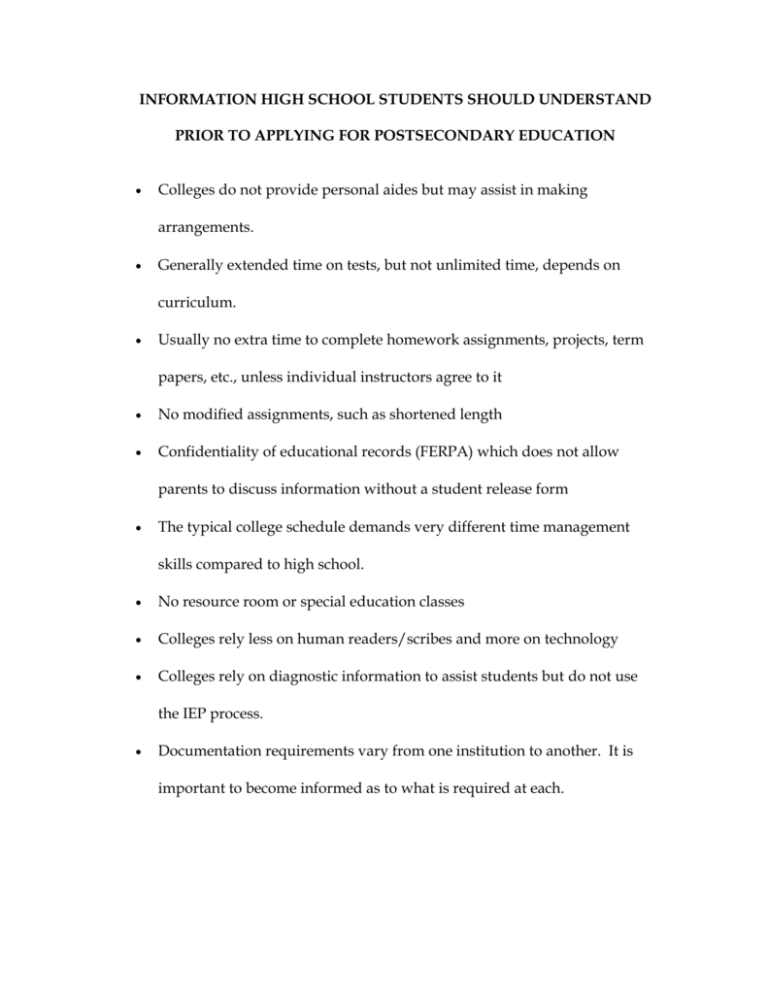
INFORMATION HIGH SCHOOL STUDENTS SHOULD UNDERSTAND PRIOR TO APPLYING FOR POSTSECONDARY EDUCATION Colleges do not provide personal aides but may assist in making arrangements. Generally extended time on tests, but not unlimited time, depends on curriculum. Usually no extra time to complete homework assignments, projects, term papers, etc., unless individual instructors agree to it No modified assignments, such as shortened length Confidentiality of educational records (FERPA) which does not allow parents to discuss information without a student release form The typical college schedule demands very different time management skills compared to high school. No resource room or special education classes Colleges rely less on human readers/scribes and more on technology Colleges rely on diagnostic information to assist students but do not use the IEP process. Documentation requirements vary from one institution to another. It is important to become informed as to what is required at each. PREPARING HIGH SCHOOL STUDENTS FOR POSTSECONDARY EDUCATION SUCCESS The Student will: Advocate for educational needs by being able to identify and discuss specific educational and/or physical challenges. Be able to discuss accommodations that have been beneficial. Be able to consider and determine the impact personal educational and/or physical challenges may have on postsecondary education and the student’s choice of field of study. Recognize and understand that IDEA ends when he/she leaves K-12 and how this affects him/her. Have an understanding of ADA and Section 504 and develop knowledge of her/his specific rights in regards to a postsecondary education. Request re-evaluation prior to high school graduation if receiving Special Education services. Request that the school provide to the student a copy of current and thorough evaluation information that identifies the student’s educational level of performance to help determine functional limitations (this should be provided just prior to graduation or right after graduation). Be familiar with the requirements and available services of the Office of Disabilities at the postsecondary institution(s) for which the student has expressed interest in attending. Understand the standard process in college – sharing an “accommodation” letter with professors and coordinating accommodations themselves. Be able to clearly and effectively discuss personal educational needs with professors (simulation practice in high school recommended). Be able to identify techniques, technology, accommodations, etc. that have been beneficial to the student (screen readers, speech-to-text software, scribe devices, etc.) Become skilled in the use of the latest assistive technology (see previous examples). Learn time management skills.

